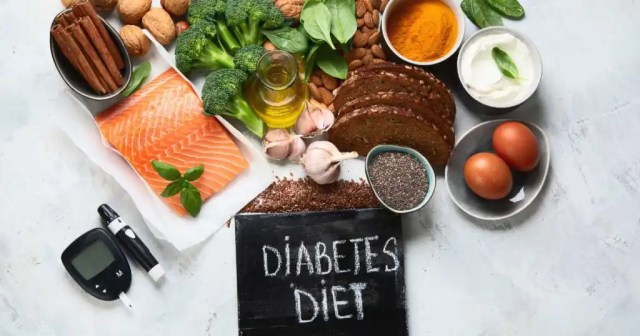Nutrition Tips for Seniors Living with Diabetes
Managing diabetes effectively becomes increasingly important as we age. For seniors, a healthy diet is a cornerstone of managing diabetes, yet it can be challenging to navigate the complex nutritional landscape. Understanding how to manage diabetes through diet for seniors is crucial to maintaining a high quality of life, reducing complications, and enhancing overall well-being.

Nutrition for seniors with diabetes is not just about restriction; it’s about making informed choices that can lead to profound improvements in health. With changes in metabolism, activity level, and nutritional needs, seniors face unique challenges. This article delves into practical strategies and tips for maintaining a balanced, nutritious diet that supports diabetes management. Readers will learn about meal planning, nutritious food choices, and lifestyle adjustments that promote healthy eating for diabetic seniors.
Understanding Diabetes and Its Impact on Seniors
Diabetes is a chronic condition that affects how your body processes blood sugar (glucose). For seniors, managing diabetes is particularly crucial because they are more susceptible to complications such as heart disease, kidney issues, and vision problems. The diabetic diet for elderly individuals must be tailored to address these risks while supporting overall health.
Data from the Centers for Disease Control and Prevention (CDC) indicates that nearly 25% of Americans aged 65 and older have diabetes. This staggering statistic highlights the importance of senior diabetes management tips that focus on dietary adjustments. For instance, integrating more fiber-rich foods like whole grains, fruits, and vegetables can help regulate blood sugar levels and improve digestive health.
As metabolism slows down with age, seniors may find it more challenging to maintain a healthy weight, which is an essential component of diabetes management. Simple changes such as controlling portion sizes and choosing nutrient-dense foods can make a significant difference. Understanding these dietary principles is key to managing diabetes in seniors effectively.
Key Nutritional Strategies for Seniors with Diabetes
Nutrition advice for older adults with diabetes involves focusing on balanced meals that stabilize blood sugar levels. Emphasizing the importance of a balanced plate, seniors should aim to fill half of their plate with vegetables, a quarter with lean protein, and the remaining quarter with whole grains or starchy vegetables.
Carbohydrate management is another critical aspect. Seniors should be mindful of their carbohydrate intake, opting for complex carbohydrates that are digested more slowly. Foods like oatmeal, brown rice, and sweet potatoes are excellent choices that provide sustained energy without spiking blood sugar levels. Real-world examples include replacing white bread with whole-grain alternatives or swapping sugary snacks for fresh fruits.
Hydration is often overlooked but is vital for managing diabetes in seniors. Dehydration can lead to elevated blood sugar levels, so it’s essential to encourage regular water consumption. Additionally, limiting sugary drinks and alcohol can help maintain optimal hydration and blood sugar control.
Meal Planning for Seniors with Diabetes
Effective meal planning is a cornerstone of healthy eating for diabetic seniors. Planning meals ahead of time can help seniors maintain a balanced diet and reduce the likelihood of unhealthy snacking or reliance on processed foods. Creating a weekly meal plan that includes a variety of foods ensures that nutritional needs are met.
Breakfast Choices
Starting the day with a nutritious breakfast can set the tone for the rest of the day. Seniors might consider options like a vegetable omelet or Greek yogurt with berries and a sprinkle of nuts. These meals provide protein and fiber, both of which are vital for blood sugar stability.
Lunch and Dinner Ideas
For lunch and dinner, seniors can focus on incorporating lean proteins such as chicken, fish, or tofu, paired with a variety of colorful vegetables. A salad with mixed greens, cherry tomatoes, cucumbers, and grilled chicken is both nutritious and satisfying. Using herbs and spices instead of salt can add flavor without increasing sodium intake.
Snacking Wisely
Healthy snacks can help manage hunger and maintain energy levels throughout the day. Options like a small handful of almonds, carrot sticks with hummus, or apple slices with peanut butter can provide a nutritious boost between meals.
Complementary Video Content
For seniors and caregivers looking to deepen their understanding of diabetes management through diet, video content can be an excellent resource. Many health organizations offer educational videos that provide visual guidance on meal preparation, portion control, and food choices that are beneficial for seniors with diabetes. These videos can be a helpful complement to the nutritional strategies discussed in this article.
Frequently Asked Questions
What are some diabetic-friendly snacks for seniors?
Diabetic-friendly snacks for seniors include a small handful of nuts, cheese with whole grain crackers, or a piece of fruit like an apple or pear. These snacks provide a good balance of protein, healthy fats, and carbohydrates, helping to stabilize blood sugar levels. For example, pairing a banana with a tablespoon of almond butter can offer both satisfaction and nutrition.
How can seniors ensure they are getting enough fiber?
Seniors can increase their fiber intake by including more whole grains, fruits, vegetables, and legumes in their meals. For instance, swapping white bread for whole-grain bread or incorporating beans into a salad can significantly boost fiber consumption. Aiming for at least 25-30 grams of fiber daily can aid in digestion and blood sugar control.
What role does exercise play in managing diabetes for seniors?
Exercise is crucial in managing diabetes for seniors as it helps improve insulin sensitivity and lower blood sugar levels. Activities such as walking, swimming, or yoga can be particularly beneficial. Regular physical activity, combined with a balanced diet, enhances overall health and aids in weight management.
Can seniors with diabetes enjoy desserts?
Yes, seniors with diabetes can enjoy desserts in moderation. Opting for desserts made with natural sweeteners like stevia or incorporating fruits like berries into Greek yogurt can satisfy sweet cravings without drastically affecting blood sugar levels. Portion control and mindful eating are key to enjoying these treats healthily.
How can caregivers help seniors manage their diabetes through diet?
Caregivers can assist by planning nutritious meals, monitoring blood sugar levels, and encouraging regular physical activity. They can also help seniors make informed food choices, such as selecting whole foods over processed options. Engaging in meal preparation together can make the process enjoyable and educational.
Conclusion
In summary, managing diabetes through diet is a vital aspect of senior health. By understanding the importance of balanced nutrition and making informed food choices, seniors can better control their blood sugar levels and reduce the risk of complications. Focusing on fiber-rich foods, healthy snacking, and proper hydration are practical steps that can lead to significant improvements in health and quality of life.
Next steps include consulting with healthcare providers for personalized nutrition advice and exploring various meal planning resources. Seniors and caregivers are encouraged to take proactive steps in managing diabetes through diet and lifestyle adjustments. Prioritizing healthful eating habits will support long-term wellness and vitality.
For further reading, consider exploring topics such as “The Benefits of Regular Exercise for Seniors with Diabetes,” “Understanding the Glycemic Index and Its Impact on Blood Sugar Control,” and “Simple Meal Prep Ideas for Diabetic Seniors.” These articles can provide additional insights and strategies to enhance diabetes management.
Check more here: https://www.vivviral.com/



